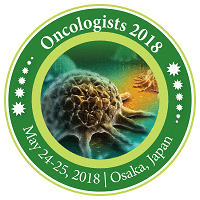
Shuo Deng
National University of Singapore, Singapore
Title: Novel roles of gelsolin, a cytoskeletal protein, in regulating chemoresistance and cancer cell survival
Biography
Biography: Shuo Deng
Abstract
Colorectal cancer is one of most common types of cancer worldwide. Current first line chemotherapeutic treatment of colorectal cancer comprises 5-fluorouracil (5-FU)-based regimen. However, response to 5-FU-based therapy varies in patients and development of drug resistance also impedes the effectiveness of treatment. Therefore, there is a pressing need to understand the mechanisms of drug resistance and identify new targets to help overcome chemoresistance. Accumulating evidence suggest that regulators of actin cytoskeleton play critical roles in the resistance to treatment and disease progression, via modulating cell survival/cell death pathways. Herein, we identify that gelsolin, an actin depolymerizing factor, contributes to resistance to 5-FU in colorectal cancer cells. Using colorectal cancer cell lines, we showed that gelsolin protected cells from 5-FU-induced cell death, while reducing gelsolin levels could sensitize cells to 5-FU treatment. Furthermore, gelsolin modulated autophagy, an important cell survival process against stresses, as a cytoprotective mechanism in response to 5-FU. We also demonstrate that gelsolin could be a potential prognostic marker for colorectal cancer patients, where patients with high levels of gelsolin and autophagy-regulating proteins showed shorter disease-free survival, compared to those with lower expression levels. In summary, we demonstrated a role of gelsolin in regulating autophagy, which contributes to 5-FU resistance in colorectal cancer cells. Our findings highlight gelsolin as a potential target for combating resistance to 5-FU based chemotherapy, and as a possible prognostic factor in patient survival.

